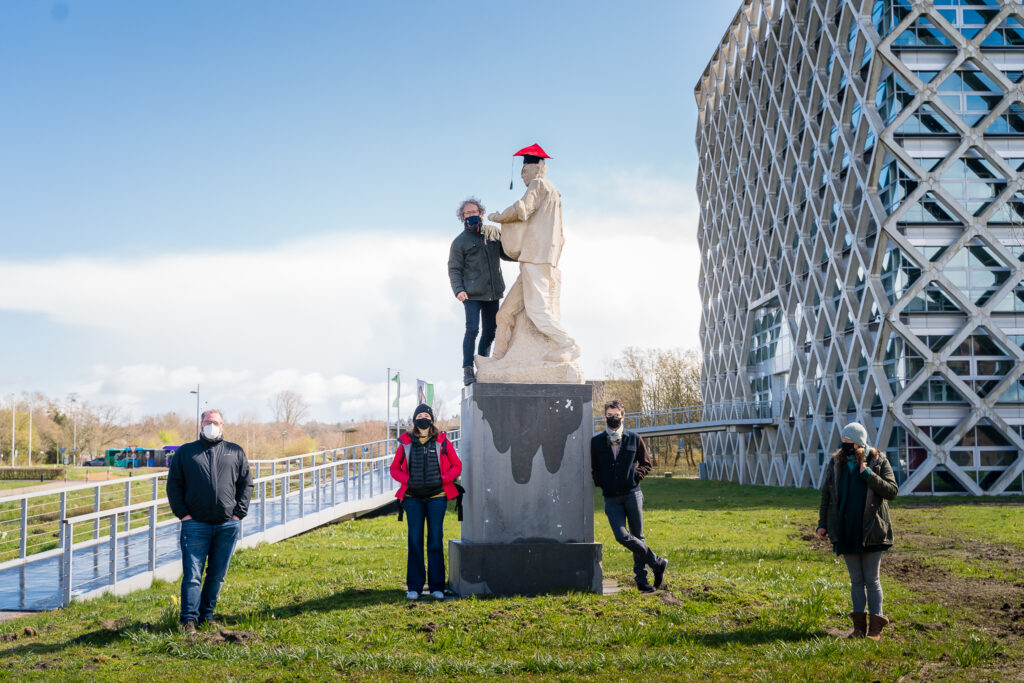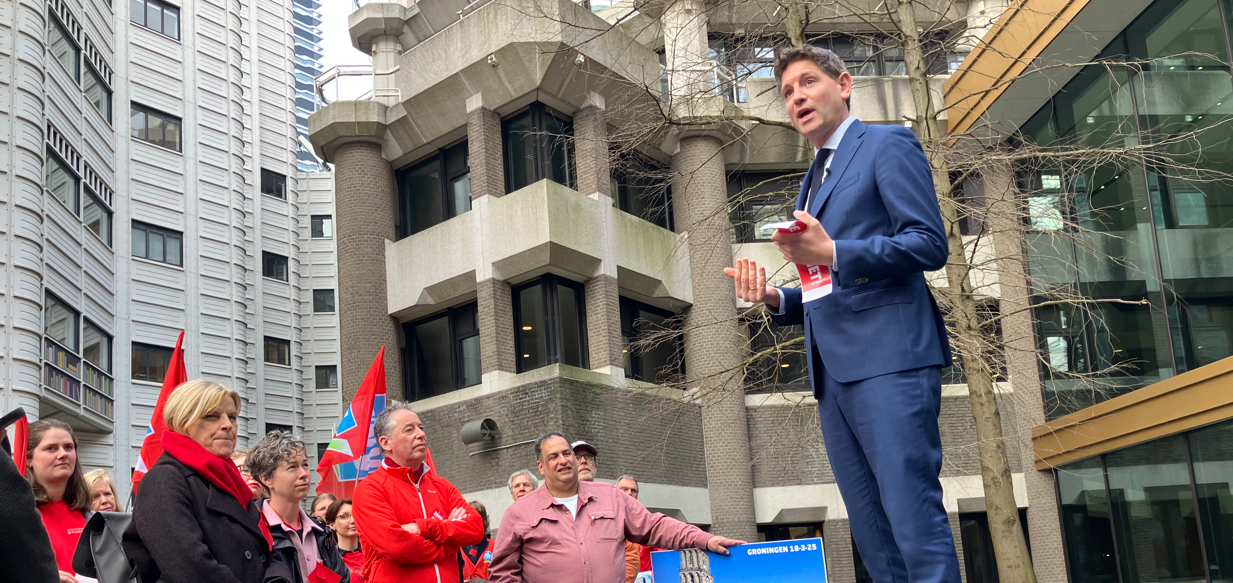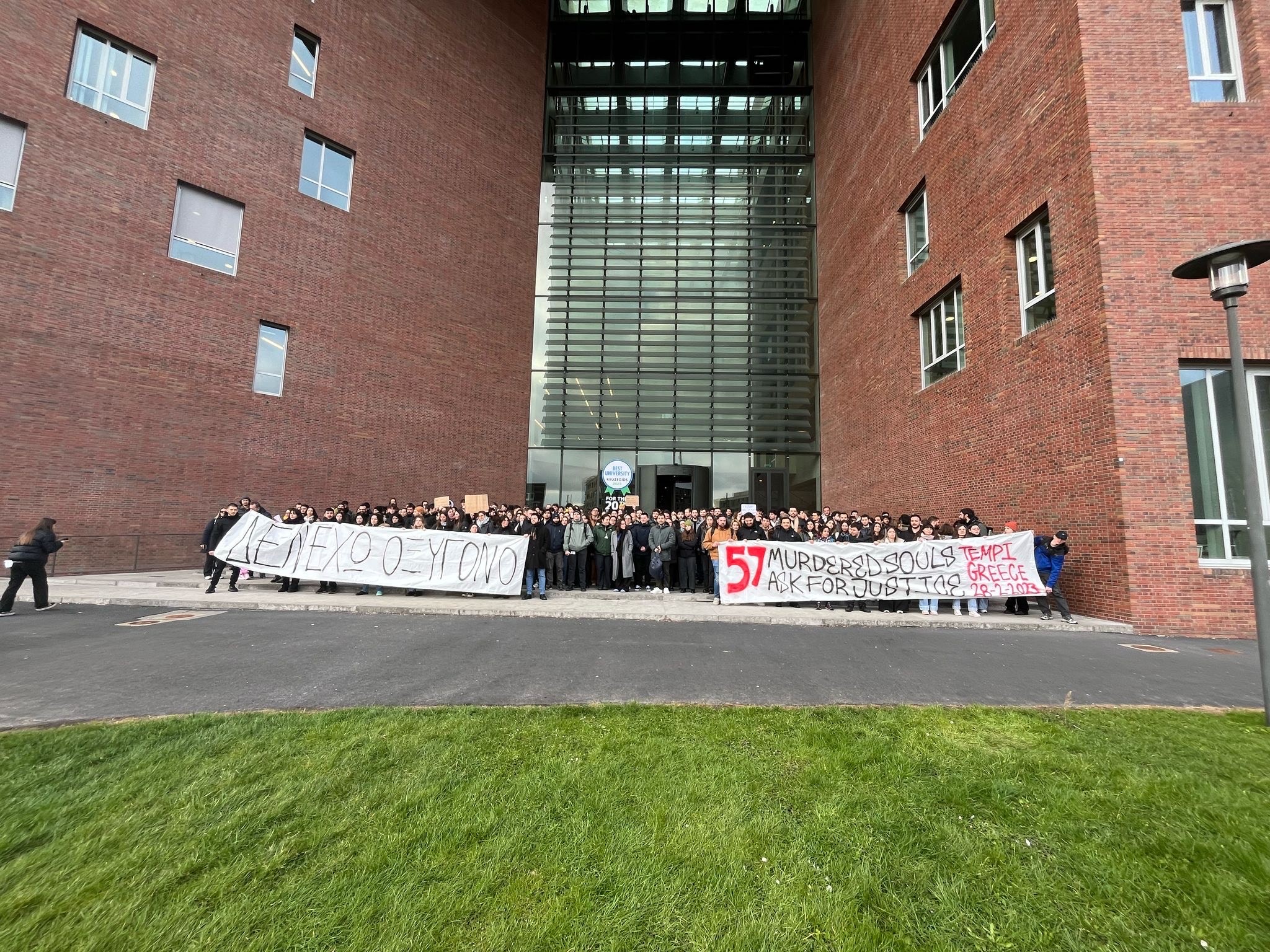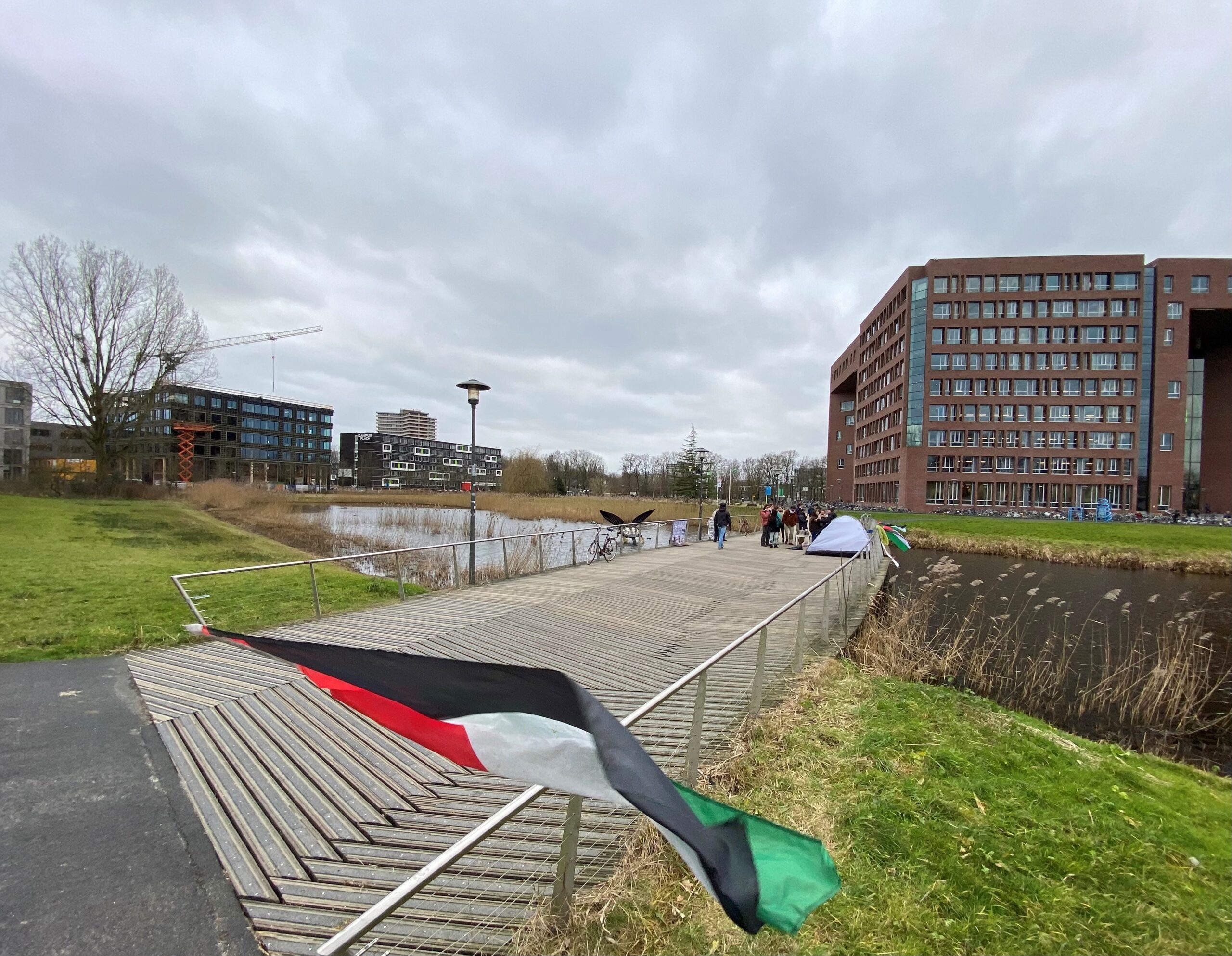A structural added 1.1 billion in funding. This is the demand for which university employees and students man the proverbial barricades. In Wageningen, the protest was made visible by donning the Zaaier (the Sower, the sculpture in front of the Atlas building) with a red beret.
United under the slogan Normal Academic Level (in Dutch Normaal Academisch Peil, a pun referring to the Normaal Amsterdams Peil, the reference against which water levels in the Netherlands are measured), managers, staff members and students of the fourteen Dutch universities sound the alarm today. They sound the tocsin over the unbearable pressure on scientific education that results from prolonged underfunding.
Symbol of protest
There are different protests, not only in The Hague but throughout the country. On Wageningen Campus, the Zaaier, the iconic statue in front of the Atlas building, was outfitted with the ultimate symbol of protest, a beret, in Alarm day red.
Quite the paradox, indeed, to have work pressure prevent you from protesting in favour of more time and lower work pressure
Michiel Köhne, assistant professor of Anthropology of Law
Assistant professor Michiel Köhne (Anthropology of Law) was one of the initiators. ‘Although there are many supporters, there were only five of us present. Very much corona-proof, but working from home and -oh the irony- lack of time prevented a larger turnout. Quite the paradox, indeed, to have work pressure prevent you from protesting in favour of more time and lower work pressure.’
Research agenda
This applies to Han Wiskerke (Professor of Rural Sociology), for example, who was unable to attend the “storming” of the Zaaier due to other commitments. He did, however, make a statement. He wrote a blog on his personal experience with structural underfunding. Blogging was one of the protest options suggested by NormaalAcademischPeil.nl. ‘It pillories how everything has become enormously competitive and how chair holders are occupied continuously with acquiring funding for research. This brings with it the risk that the research agenda is increasingly determined by the substantive priorities and prerequisites of the funders’, says Wiskerke.
He also calls attention by placing the structural work pressure (links to Dutch content) on the agenda during the monthly department meeting of the social sciences on this alarm-Tuesday.
Telling
Associate professor Rolf Groeneveld (Environmental Economy and Natural Resources) was also unable to attend in person due to lack of time. ‘I have five meetings I cannot reschedule. Which is, in itself, telling’, he stated last week. ‘However, I am happy WUR is supporting the protest.’

Protester Köhne feels WUR could have made its voice heard much louder and more actively on this Alarm Day. ‘If only out of solidarity with universities in even more detrimental situations. WUR has the relative luxury of receiving extra money (links to Dutch content) as a technical university at the expense of other universities. The results are shocking. I hear accounts of other lecturers who are no longer able to do any research as they are overburdened with teaching duties; on promising scientists hopping from contract to contract with barely a chance of being given a permanent position. I am truly concerned about how this affects the academic quality in the Netherlands.’
The research agenda is increasingly determined by the substantive priorities and prerequisites of the funders
Han Wiskerke, professor of Rural Sociology
The protests on this Alarm Day are intended to alert the future cabinet to the structural underfunding of Dutch universities. For many years now, government funding has failed to match the significant increase in student numbers. The VSNU (Association of Dutch universities) calculated that the government contribution decreased from 20,000 euros per student in 2002 to just over 15,000 euros last year. ‘This prevents students from receiving the quality of education they deserve, and puts unbearable pressure on scientists’, says the protest website of Normaal Academisch Peil.
The protesters call for a structural additional 1.1 billion euros in annual funding for the universities. ‘Only thus will we be able to elevate scientific education in the Netherlands to the Normal Academic Level.’ The protest group WOinActie (links to Dutch) calculated a similar sum previously, and a PWC (links to Dutch) report confirmed last month that universities have a deficit of 800 million in structural funding and a further 300 million in incidental funding.

 Michiel Köhne, assistant professor in Anthropology of Law, dons the Zaaier with the ultimate symbol of protest: a beret, in Alarm Day-red.
Michiel Köhne, assistant professor in Anthropology of Law, dons the Zaaier with the ultimate symbol of protest: a beret, in Alarm Day-red. 

